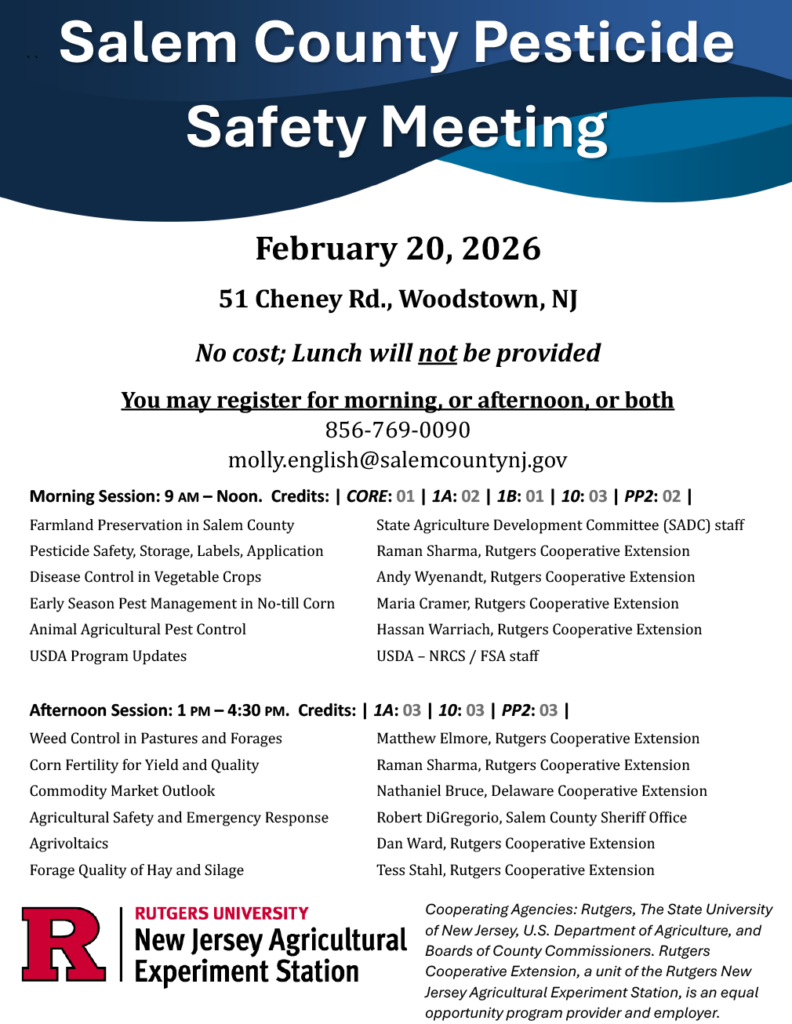North Jersey Equipment Calibration Grower Meeting
March 24, 2026
3:00 PM – 6:00 PM
Clifford E. & Melda C. Snyder Research & Extension Farm
New Jersey Agricultural Experiment Station
140 Locust Grove Road
Pittstown, NJ
South Jersey Equipment Calibration Grower Meeting
March 25, 2026
3:00 PM – 6:00 PM
Rutgers Agricultural Research & Extension Center
121 Northville Road
Bridgeton, NJ
Agenda, Registration and Pesticide Credits will be announced shortly.


